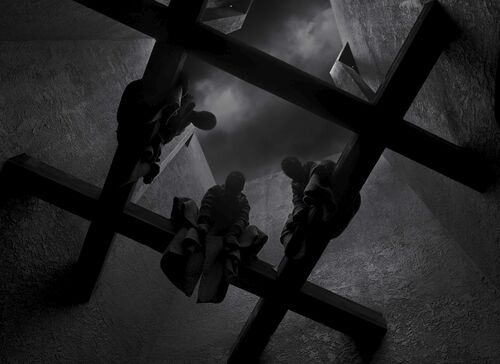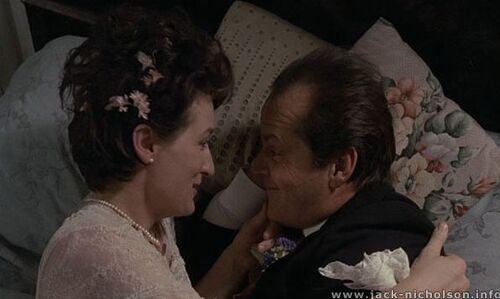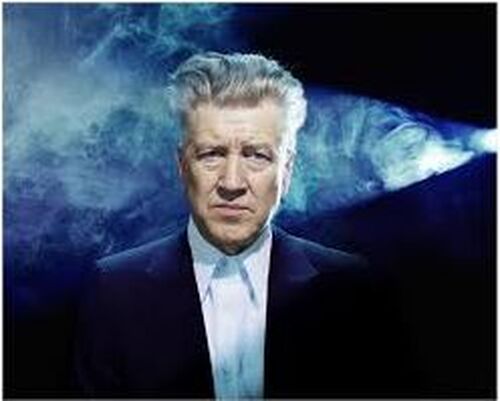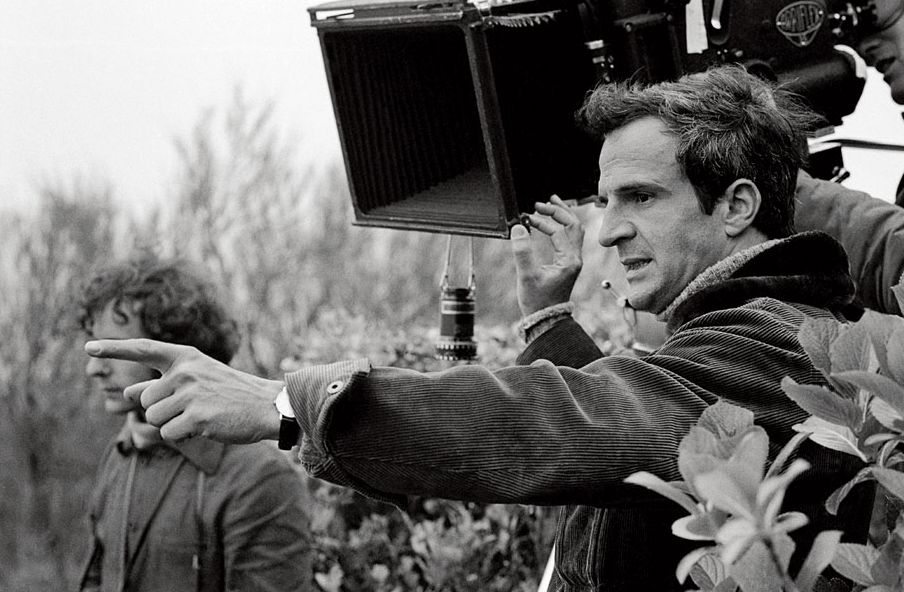
Truffautbruary, a month dedicated to Francois Truffaut: Shoot the Piano Player
 Worldwide critical and commercial success following Francois Truffaut's debut feature The 400 Blows, left him free to tackle almost anything for his sophomore feature.
Worldwide critical and commercial success following Francois Truffaut's debut feature The 400 Blows, left him free to tackle almost anything for his sophomore feature.
After being smitten with Charles Aznavour after seeing him perform in a play "The Keepers", Truffaut knew he had to cast him in a feature film to play a version of himself. After making a biographical film covering his youth with his debut film, Truffaut sought to express other aspects of his personality. Truffaut saw himself as "often anxious, pessimistic, a pathologically shy seducer", and thought that Charles Aznavour could embody those personality traits with ease. Truffaut saw Aznavour as being able to provide the character with a vulnerable humility and graciousness that could mirror Truffaut's. It did not go without notice that, once again, Truffaut even cast a person that looked like him in a role playing a version of himself. In the case of Aznavour, he and Truffaut even shared mannerisms, with both being expressive, vivacious, excitable and anxious, elegant, yet iron-willed. Truffaut first became interested in Down There, the novel by David Goodis, because he was intrigued by the story, which read like a fairy tale given the noir treatment. Truffaut saw the text as a detective-like thriller, but also an intimate novel, a blending of themes he felt he could illustrate onscreen. Seeking to test his range as a filmmaker, Truffaut wanted to make a film in stark contrast to The 400 Blows, with his second feature which began shooting in November of 1959. With double the budget he had to work with on The 400 Blows, Truffaut was free to be creative and expressive with experimentation on the set of Shoot the Piano Player. Being as the film involves a pianist, Truffaut injected the musical elements of the story into the narrative by often changing tempo to make the film more musical. The initial reviews on Shoot the Piano Player were mixed which greatly depressed Truffaut and began to undermine his confidence. The negative box office draw left Truffaut thinking of the film as a dreadful failure. The years have been kinder to Shoot the Piano Player than Truffaut was, as it is now regarded not only among the best of his films but among the best examples of French New Wave.
At the heart of the film, Shoot the Piano Player is about Charles Aznavour's characterization as a sentimental hero. Feeling culpable after his wife's suicide, Charlie Kohler has given up his life and career as a concert pianist for dive bars and an escape from the world. His commitment to keeping himself isolated works for Charlie, until his brother, Chico (Albert Rémy) quite literally, crashes into his life after getting himself into trouble with two gangsters. Chico is on the run and looking to Charlie for help. Charlie helps Chico escape, but not without turning the attention of the gangsters onto himself. Charlie doesn't mind taking the heat until his younger brother Fido (Richard Kanayan) gets involved. Fido had been under the care of Chico and had adopted many of his delinquent behaviors. When everyone Charlie loves becomes entangled in his brother's criminal affairs, Charlie has to abandon his cautious shyness and take action, to disastrous results.
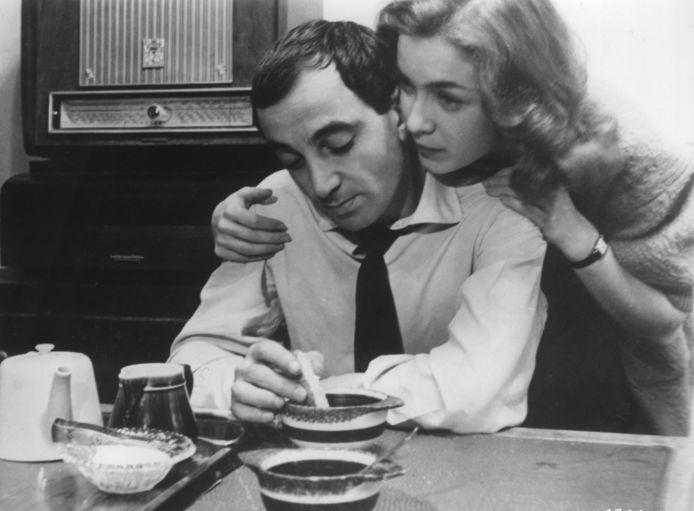
Who can blend slapstick comedy, a doomed romance, and gangster thriller? The answer is Francois Truffaut, but that combination of such starkly different dramatic tones is precisely what critics responded negatively to upon its initial release. The overwhelming cloud of melancholy hanging over the film makes the audience immediately sympathize with our sentimental hero, Charlie. We're given the impression that he has accepted his life as a depression-filled existence with moments of bliss, similar to that of a Woody Allen film. The frenetic energy from the very beginning of the film pulls the audience in and never lets go. All intrigue and sense of mystery is instantly established with the panicked running of Chico through the streets, as the audience is unaware of where he is running to, or who he is running from. After crashing into a light pole, Chico takes the time to have a conversation with a married man to discuss the benefits of marriage. This interaction informs the audience of one of the themes in the film, loss and the relationships that enhance human life. In addition to Truffaut offering Shoot the Piano Player as an homage to American gangster films, he also pays tribute to slapstick and silent films, as well. The scene in which Fido and his friends are shown running up the stairs of an apartment building to throw milk from the window onto a car below is beautifully sped up and cut in such a way that one is reminded of a Buster Keaton gag. The opening of the film with the camera focusing on the inner workings of Charlie's piano while the beautiful music he plays is heard is a brilliant way to be introduced to the softness of Francois Truffaut, and the loving treatment he gives his characters. The score in itself is amazing and lends itself greatly to the tension building, while also providing an insight into Charlie's life. I purchased the score immediately after finishing the film, and have been blissfully listening to it, practically on repeat. Francois Truffaut was an avid fan of music and took sincere care in crafting his score selections around his films. All innovative aspects of The French New Wave I love are present in Shoot the Piano Player. The jump cuts, the overlays, the freeze-frames, and the experimental editing all come together to prove that Shoot the Piano Player is a dazzling part of The French New Wave despite its initial reception.
If you've been following my trip through Francois Truffaut's filmography this month, you're probably tired of hearing me discuss the amount of heart found in each of his features. The autobiographical elements, coupled with the graceful way Francois depicts his characters shows his deep level of respect for the human condition. Truffaut lays bare his troubles with interpersonal relationships and his longing for love in each of his films. He covers heartbreak, especially, in a touching way. We feel the pain of our sentimental hero, as the camera lingers on his face, highlighting his disappointment about his predicament but leaving a glimmer of hope toward the future. Shoot the Piano Player exposes various aspects of Truffaut's own identity; the film is fun and energetic, mysterious, and most importantly richly humanist making clear the fact that Francois Truffaut made this film for no one other than himself, the audience is just lucky enough to be able to experience it, too.
